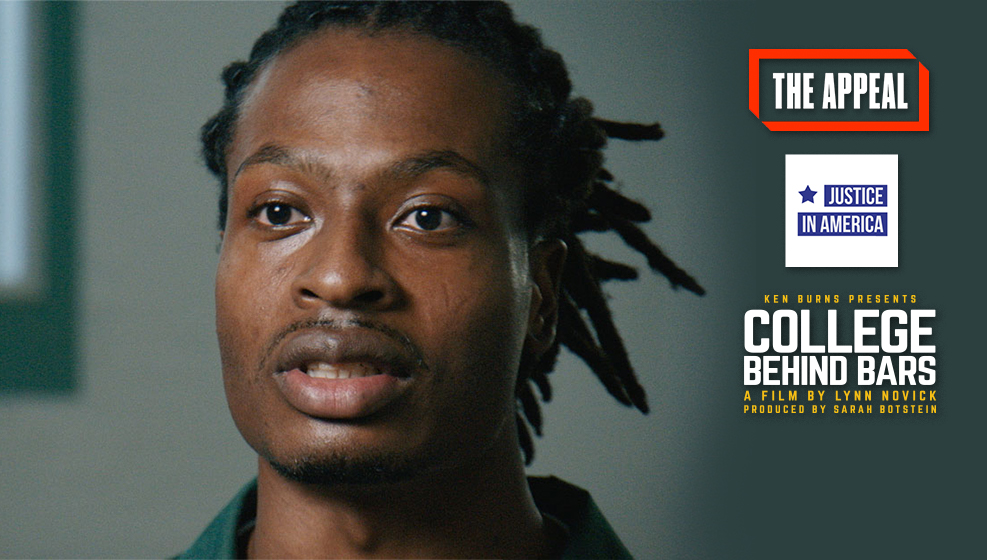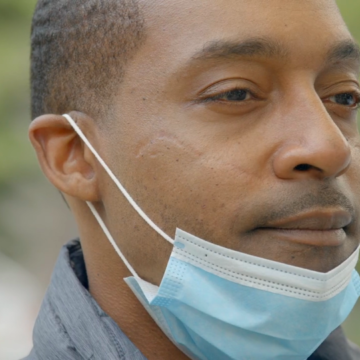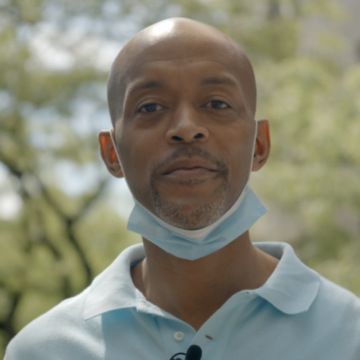Prisons, one graduate writes, should be institutions of learning, not ‘wastelands’ that willfully overlook human potential.
by Rodney-Spivey Jones ’17
Opinion Contributor
A few weeks ago, I was sitting at a library table with several other tutors, discussing strategies for supporting first-year Bard College students. One colleague suggested that we organize a workshop to introduce students to creative writing. Another said we should teach sentence structure and paragraph cohesion. Mentally, I took a step back for a moment and really looked: Here we were, 10 men surrounded by books and the tapping of computer keys discussing tutoring strategies inside a New York state prison.
I have been incarcerated since I was 19—nearly 18 years. I know that many Americans are convinced that the conditions in which incarcerated men and women like me live—the stifling heat and the frigid cold, the enforced idleness, the abuse that sometimes leads to death—are well-deserved, that all of this is justice. If prisons are supposed to be finely tuned instruments of punishment, they succeed 100 percent of the time.
But if prisons are meant to rehabilitate, they are failing. They destroy mental health and crush dignity, right before propelling us back out into the free world—broken and disillusioned. Indeed, the national recidivism rate is 83 percent; in New York, more than 40 percent of people released from prison are back in prison within three years. The doors to prison are well-worn turnstiles and everyone pays the price—$50 billion per year—over and over again.
As a country we could try to imagine a society that throws no one away, an America determined to educate every one of its citizens regardless of criminal history. Prisons—if they must exist at all—should be institutions of learning, where incarcerated citizens consider the importance of community building and civic engagement. They should be universities, not vast wastelands of soul-crushing misery and discarded human potential.
“Education is the purest form of rehabilitation,” Anthony J. Annucci, acting commissioner of the New York State Department of Corrections and Community Supervision, has rightly observed. He was referring to programs like the Bard Prison Initiative (BPI), through which I earned a Bard College bachelor’s degree. Many who share his view rely on recidivism rates to measure success. Reduced recidivism means improved public safety. Among BPI alumni the recidivism rate is just 2 percent, a fraction of the state average.
However, the value of a rigorous liberal arts education is greater than reduced recidivism and tax savings, greater than getting jobs and staying out of trouble. In the classroom we begin the heavy lifting of self-examination, considering our place within and effect on the world. Struggling to parse difficult texts gives us an opportunity to explore the human condition, and in the process examine layers of our own humanity. In the space that colleges create within prisons we begin to appreciate how our actions, and our absences, affect our communities, and we take these lessons with us.
After leaving prison, many BPI alumni join nonprofit organizations, participate in local politics, and, to the extent possible, repair the harm we’ve caused. Many of us know that we owe a debt impossible to discharge, yet we attempt to do so because a liberal arts education cultivates and nourishes a sense of accountability and community.
Believing that incarcerated citizens constitute a separate and distinct population can give the country only a false sense of comfort and security. No matter how hard we try, no matter how justified we feel, America cannot amputate more than 2.2 million people from the social body. Ninety-five percent of us will return; if nothing changes, most of us will return ill-prepared to make meaningful contributions to society.
There is a clear choice.
America can have wastelands of discarded human potential, and all of the “success” that produces—high incarceration rates, more crime, and more hurt people—or institutions that promote intellectual growth and civic engagement. We cannot have both.
Rodney Spivey-Jones received his bachelor’s degree from Bard College in 2017 through the Bard Prison Initiative (BPI) and is featured in the PBS documentary series “College Behind Bars.” He is incarcerated at Fishkill Correctional Facility in Beacon, New York








